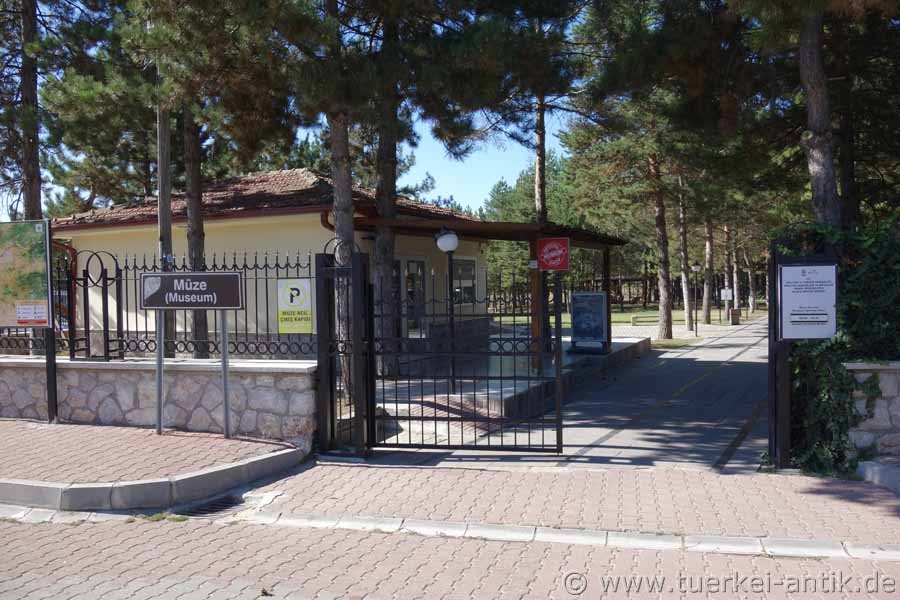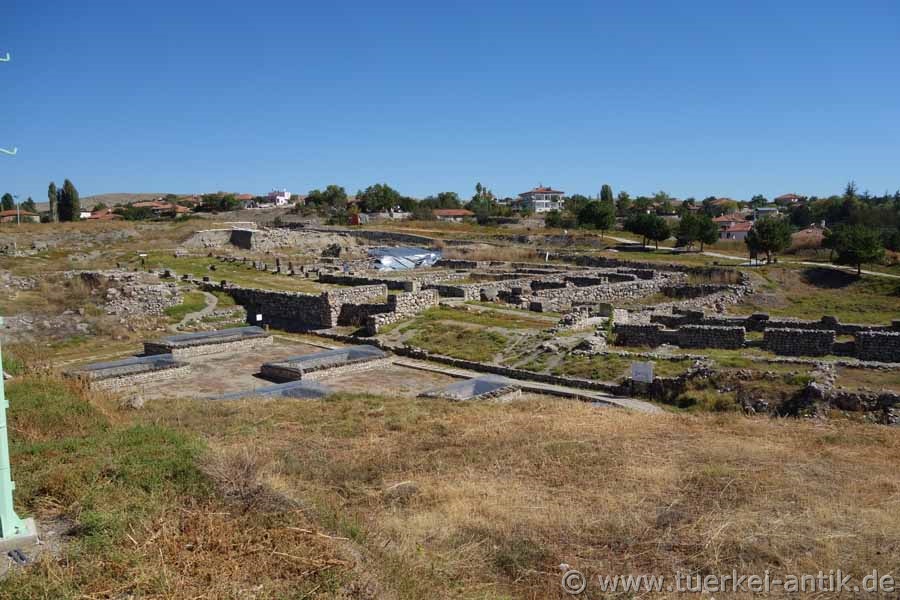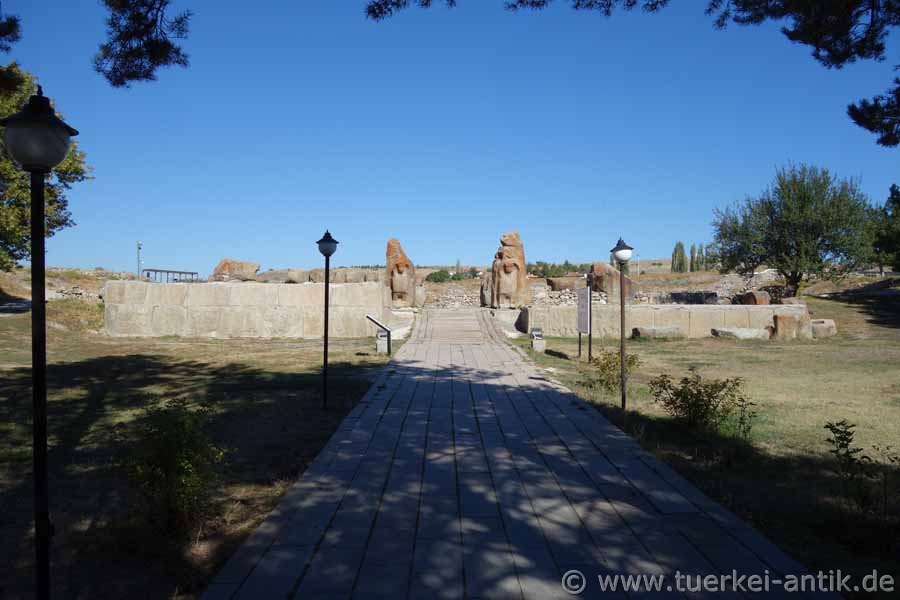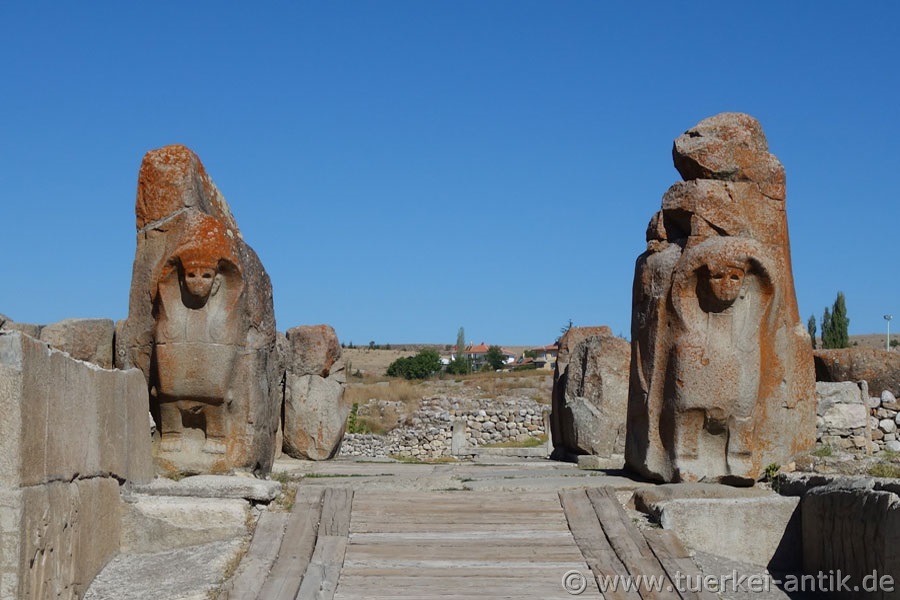 |
| Alacahöyük | |||
 |
|
||
| The entrance to the excavation site | |||
|
Alaca Höyük (also Alacahöyük or Alaca Hüyük) is a settlement hill near the village of the same name, 25 km northeast of Hattua (Hattuscha), the capital of the Hittite Empire. It is equated with the Hittite Zippalanda (Popko 1994) or Arinna, the cult place of the sun goddess. |
|||
|
|
|||
| One of the two city gates | |||
|
Alaca Höyük was already in the second half of the 6th Jt. v. Chr., thus in the middle Chalcolithic. In the middle of the 3rd millennium B.C. it was a settlement of the pre-Hittite, non-Indogermanic hattier, of which the found princely tombs bear witness. In the time of the Hittite Empire 1600-1200 B.C. it was an important town, but it stood in the shadow of the nearby capital Hattua. However, a possible identification with Zippalanda, Kuara or Arinna is not certain. At that time the settlement was extended with a fortification with at least two gates. With the fall of the Hittite Empire the history of the town ended for the time being. In the early 1st millennium B.C. the place was briefly inhabited by Phrygians. |
|||
|
|
|||
| The two portal sphingen | |||
|
|
|||
| The princely tombs | |||
|
|
|||
|
Hattish Prince |
|||
|
Alaca Höyük was discovered in 1836 by the English geologist and explorer William John Hamilton. Theodor Makridi did his first research in 1907. In the 1930s, the Turkish archaeologists Hâmit Zübeyir Koşay and Remzi Oğuz Arık uncovered the so-called princely tombs during excavation work commissioned by Türk Tarih Kurumu, in which the bronze standards of Alaca Höyük were found along with other burial objects. Translated with www.DeepL.com/Translator |
|||
|
|
|||
 |
|||
| city area | |||
|
|
|||
|
Since 1997, excavations have been carried out by the University of Ankara. Since 2009, the German Mining Museum Bochum in the Museum for Anatolian Civilizations in Ankara has been investigating metal finds from the tombs of Alaca Höyük as part of the project Metal Finds of the Early Bronze Age Princely Tombs of Alacahöyük funded by the Fritz Thyssen Foundation. |
|||
|
|
|||
|
|
|||
|
Poterne (Tunnel into the city) |
|||
|
|
|||
| Photos: @chim, Monika P. | |||
| Translation aid: www.DeepL.com/Translator | |||
| Source: Wikipedia and others | |||
|
|
|||



